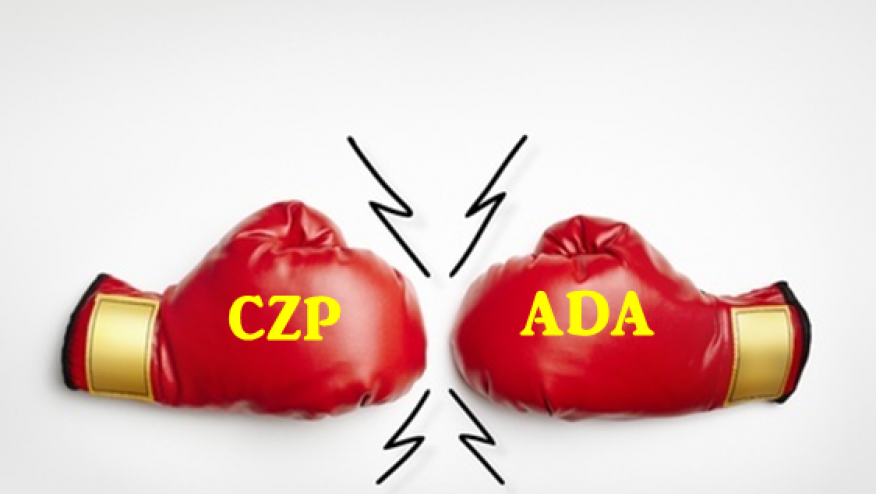Key Lessons from the TNF Inhibitor Head-to-Head EXXELERATE Study Save

The EXXELERATE study is featured prominently in Lancet this week. In some ways, this represents a landmark negative trial that rheumatologists should review and be aware of.
Study Synopsis: This was a 102 week trial of certolizumab (CZP) versus adalimumab (ADA) in 915 rheumatoid arthritis (RA) patients who were seropositive, with active disease (> swollen joints plus an elevated CRP or ESR). Novel in that it was an H2H trial; even more novel was that it was powered to be a superiority trial wherein it was estimated that the short-term week 12 CZP ACR20 response would be 62% and the ADA response would be 50%.
Patients not achieving low disease activity (LDAS) at week 12 (hence, primary nonresponse) were switched to the other TNF inhibitor (TNFi). Both arms of the trial were equally balanced with a mean of 6 years disease duration and the mean entry DAS28-ESR (6.5) and CDAI (38-39) indicating very active disease at enrolment. All patients stayed on background methotrexate (MTX) and the trial was double blinded for the first 12 weeks and the investigators remained blinded thereafter.
In the end, few patients dropped out and the ACR 20 responses at week 12 were the same (69% vs. 71%), as were the week 102 low disease activity (LDAS) numbers (35% vs. 33%). This was not an Xray outcome trial and the safety signals were similar between groups.
|
Primary Responders at Week 12 and 104 |
||
|
|
ACR20 Response Week 12 |
DAS28-ESR LDAS Week 104 |
|
CZP/MTX |
69% |
35% |
|
ADA/MTX |
71% |
33% |
|
Primary Nonresponders (who switched) at Week 24 |
||
|
|
ACR20/50/70 Responses Week 24 |
DAS28-ESR LDAS Week 24 |
|
CZP à ADA (62%) |
40%/17%/8% |
19% |
|
ADA à CZP (58%) |
44%/23%/11% |
21% |
5 Key Lessons from the EXXELERATE trial:
- All TNF inhibitors have equivalent efficacy in RA. Sure you may have your favorite, but this study proved that one is not better than the other TNFi. This study also showed equivalent efficacy, but I would not assume equivalent safety for all 5 TNF inhibitors; that’s another can of worms.
- H2H trials are a waste of time and money. Unless mandated by a regulatory agency or to prove biosimilarity, H2H trials have little impact on practice or prescribing. The EXXELERATE trial was misguided in believing one TNFi could be “superior” to another. Moreover, past H2H trials (e.g., AMPLE, etc.), while interesting, are not impactful when they show noninferiority.
- TNFi Primary Non-response is reason enough to switch to another non-TNFi biologic. While this trial showed that a primary non-response may be followed with a 40% chance of responding to another TNFi, there is a growing body of evidence showing that switching to a non-TNFi (other MOA) biologic will yield ACR20 responses in greater than 50% of “switchers”. The EXXELERATE results favour the potential higher responses seen with biologics targeting other MOA (e.g., abatacept, rituximab, tocilizumab, anakinra, tofacitinib). Also note that this 40% ACR20 response rate seen by cycling from one TNFi to another may be inflated, for the reasons noted in #5 below.
- Only 12 weeks is needed to determine a drug response. If you haven’t responded to a TNFi (or other newer therapies) by 12 weeks, it’s time to move on. To delay DMARD change wait for a paltry few more low level responders is unnecessary in this age of multiple therapeutic options. This was suggested in the editorial by Drs. Kviem and Uhlig, who also noted that the ACR20 was designed to show differences between competing therapies and not designed to show superiority in a H2H trial.
- Higher than 60-40-20 Responses. While this trial was done in MTX-IR patients of varying duration and severity, one might have expected the usual 60/40/20 response. But the higher than expected responses seen here (>80% ACR20 at week 24) are a product of both a non-placebo study design (wherein everyone is guaranteed one TNFi or another) and the use of background MTX.










If you are a health practitioner, you may Login/Register to comment.
Due to the nature of these comment forums, only health practitioners are allowed to comment at this time.